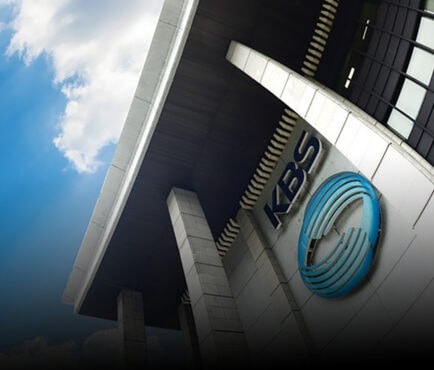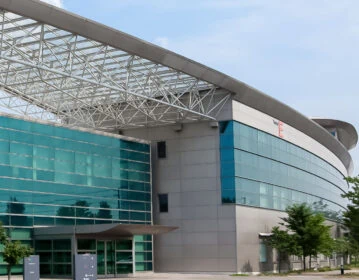
For nearly a century, Korean Broadcasting System (KBS), has been a cornerstone of South Korea’s media landscape. Founded in 1927, as Gyeongseong Broadcasting Station (JODK), KBS began as a pioneering radio service before evolving into Seoul Central Broadcasting Station in 1947. The organization made history again in 1961 with the launch of its first television broadcasts, setting the stage for its transformation into a full-fledged public broadcasting system in 1973.
Today, KBS stands as South Korea’s leading public broadcaster, operating stations in nine major cities and nine regional locations across the country. Its reach extends far beyond national borders, with overseas branches in 11 regions, including the US, Europe, China and Japan, staffed by dedicated reporters, producers and correspondents committed to delivering trusted news and programming worldwide.
Choosing the right channel to support SAP
Since 2002, KBS has relied on its SAP ERP system for financial accounting, purchasing inventory, asset management and year-end payroll settlement which represents 1000s of customized programs. Relying on vendor support to maintain their SAP platform, they faced language difficulties as support was made available only in English. And even that support was hard to access as most of their systems are highly customized, a critical feature not included in vendor support.
With SAP maintenance set to end in 2025, KBS focused on a path that would advance business goals over vendor deadlines. “Our highly customized SAP ECC 6 system is a competitive differentiator, and it stores an incredible amount of data on our talent, financials and operational processes, all of which will serve as fuel for our AI initiatives,” said Goo Yub Nah, IT Director at KBS.
Hong Sur Park, General Director (IT CTO) at KBS shared, “The biggest concern in our company’s IT operations was about how we would use SAP going forward, since we had already been using it for 20 years. It was an area that required a significant budget, but fortunately, we discovered a company called Rimini Street.”
Choosing Rimini Support™ for SAP, KBS could now maintain a stable system operations without the disruption of undergoing a costly, forced upgrade to S/4HANA to maintain vendor support. The partnership with Rimini Street has also addressed previous vendor pain points around end-of-year reporting, lack of local language support and slow response times.
“We carefully evaluated our options and decided keeping our existing systems expertly supported by Rimini Street would be the smartest, fastest path to realizing our AI vision, and funding it too,” added Nah.
The transition to Rimini Support™ for SAP ECC, guided by an established onboarding process, was systematically executed to ensure the stability of KBS’s SAP system, safeguarding existing data and avoiding disruption. Rimini Street’s dedicated Primary Support Engineer (PSE) model assigned an application-specific, Korean-speaking engineer to learn KBS’ systems and provide prompt, professional support with an under 2-minute average response time for P1 critical issues. This model has played a key role in enhancing operational efficiency and supporting KBS’s strategic objectives.
“The stability of the system has been greatly improved with Rimini Street. A dedicated engineer is available 24/7, providing customized technical support, allowing us to apply solutions to our system immediately. I believe this is the greatest advantage,” Nah said.
With the traditional vendor support model, KBS had to self-support the highly customized parts of their SAP system and responses from the vendor could take up to a week. “Rimini Street provides support for many of our modules – those that are customized, and those that cannot be, such as patches and things that touch the code. Their engineers respond quickly, and they give my team great support,” Nah said.
Taking the static out of year-end reporting
With the help of Rimini Street’s tax and regulatory services team, featuring one of the industry’s fastest “Legislature-to-Live™” update delivery, KBS promptly receives only the updates that apply to their systems so that they can easily keep up with HR reporting and other regulatory changes. For example, when tax laws changed in 2024, Rimini Street quickly applied bug fixes and the custom year-end tax settlement updates, allowing KBS to complete year-end reporting for its 1000s of employees around the world more smoothly than ever.
Eun Bi Park, SAP ERP, HR Module (Tax) Manager at KBS, shared, “Before Rimini Street, we would have had to carry out development on our own. This was a risky and burdensome task for us to take on. Rimini Street proactively included those changes and related accounting updates.
“With the vendor, there were many cases where we had to forcibly upload or apply patches even if we didn’t want to. When applied, these patches would install programs that KBS did not use, and we would have to review and modify the updates afterward. There were quite a few cases where we worked with extra manpower for fear of the impact of the next patch, but Rimini Street provides customized services which are more convenient for us,” shared Ms. Park.
Establishing the vision for the next era of broadcasting
Like many public institutions, KBS is navigating the rapid evolution of the broadcasting landscape, including the rise of over-the-top (OTT) content delivery platforms and intensified competition in broadcast advertising. In this competitive landscape, KBS aims to lead the future of broadcasting through technological innovation and high-quality content, continuing to strengthen its role as a trusted public broadcaster in both domestic and international markets.
Mr. Park listed his top goals, “First, we’d like to introduce AI to streamline the production process. Second, we need to develop an IT platform to better serve broadcast content globally in the digital sector. And third, we want to refine financial data so that it can be used for budget and policy decision-making so that production costs can be used efficiently.”
KBS is focusing on building out its infrastructure to support the next era of broadcasting. They’ve chosen to take a composable approach to ERP, adding best-of-breed technologies around their stable, core SAP ECC system. This allows them to actively respond to Korean government and public sector digital transformation initiatives, leveraging AI, cloud and data-driven technologies to enhance the quality, time to market and efficiency of its broadcast services.
“The most important thing in AI is what kind of data you have and how you maintain high-quality data,” Nah said. With over 20 years’ worth of data in their SAP system expertly supported by Rimini Street, they’re now able to focus on how to refine that data to use with AI and other emerging technologies.
KBS’ experience demonstrates how Rimini Street can both enable cost savings to self-fund innovation and serve as a strategic partner to future-proof and optimize IT capabilities. “By switching to Rimini Street, we have freed ourselves from the high costs of our traditional support model, allowing us to focus on key projects such as digital broadcasting technology innovation,” Nah said.
Our solutions for KBS
Receive comprehensive enterprise software support from a proven provider. Whether you need issue resolution, performance tuning or regulatory compliance, you can trust Rimini Support™ to deliver.
With Rimini Support, you gain:
- Support for customizations not covered by the vendor
- The strength and knowledge of hundreds of seasoned engineers on your team, but not on your payroll
- Potential savings of up to 90% of total support costs
Keep your software assets up to date and compliant with relevant tax, legal and regulatory requirements — without the need for vendor upgrades or migrations — thanks to the fastest “Legislature-to-Life”™ delivery cycle in the industry.
Let’s start a conversation
Learn how our end-to-end IT support, management and innovation solutions can help unlock savings, realize new efficiencies and accelerate your transformation.











